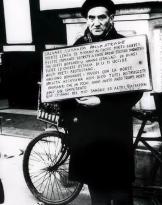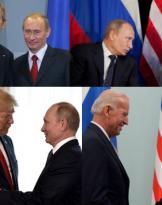To better understand what is contained in art. 17 of the law in question will proceed to a systematic analysis of the same, with the intent to capture all the most hidden aspects that lie behind a lexical structure sometimes of doubtful interpretation.
Article. 17 in the paragraph 1 establishes that “Without the provisions of art. 51 of the Criminal Code is not punishable the staff of the Information Services for security that implements conduct provided for by law as a crime, legitimately authorized from time to time as indispensable to the institutional purposes of such services, in strict compliance with the limits referred to in paragraphs 2, 3, 4 and 5 of this article and the procedures established by art. 18 ".
The first part of this article identifies the recipients of the regulation in question. According to the provisions of art. 2 paragraph 2 for Information Services, it is necessary to refer to the two agencies constituted by this law, namely the AISE and the AISI. Recipients of the special cause of justification are therefore only the operators of these agencies excluding those who are in force at DIS because this is not included among the information services but is incorporated into the Information System, which also includes the President of the Council of Ministers, COPASIR and the Delegated Authority where established.
An important aspect to be analyzed in this context is the position of those who do not participate strictly in the Services, but have participated in the activity, in competition with one or more employees of the Agencies. Returning to the substantive approach of the law n. 146 / 06 in which the comma 5 of the art. 9 provides for the extension of the cause of non-punishment even for auxiliaries who collaborate with the officers of the PG in certain operations, including the law n. 124 / 2007 foresees the same eventuality. The comma 7 of the art. 17 provides that when for specific conditions of fact and for exceptional needs, the activities indicated in the article in question were carried out by subjects who do not belong to the Services themselves, in competition with one or more of them, and it appears that the use of their work was indispensable and had been authorized according to the procedures set out in the 18 article, these people benefit from the special cause of justification like the operators of the Services.
The paragraph in question needs some clarifications. First of all the implicit reference to art. 119 of the penal code, which in paragraph 2 establishes that the objective circumstances that exclude the penalty, namely those contained in articles. 50 - 54, have effect for all those who have competed in the crime. Always to the penal code, this time to the art. 110, we must refer to correctly interpret the part in which we identify the subjects with whom we compete, as this article includes both cases of moral and material competition.
Major difficulties emerge in the interpretation of the terms used to identify the cases in which the activity of external subjects is required, as this inevitably affects the authorization process that risks being provided with a weak motivation due to the difficulty of identifying the exact meaning of the formulas used by the legislator (1). Eventuality that would risk causing the cancellation of the authorization provision in the event of a conflict before the Constitutional Court with consequent submission to the penalty for the external competitor. From the objective point of view, obvious difficulties emerge at the time of authorization of the pipelines. The conduct established by law as a crime to be criminalized must be legitimately authorized and the set of factors to be assessed for the issue of a legitimate authorization is difficult to analyze. Difficulty due to the fact of having to take into account a series of connections and parameters that can be questioned in judicial first and then constitutional control. Reference is made to the criteria established in the paragraph 5, whose compliance allows the applicability of the cause of justification and which will be object of reflection later.
The time of these authorizations is also significant. Article. 17 comma 1 of the law n. 124 / 2007 provides that the same are released from time to time for each individual operation. Consequence of this presentation is the impossibility for the political Authority to issue a generic authorization for all those conduct that respond to the determined canons and at the same time the need for circumstantial requests coming from the directors of the two agencies in order to allow the political Authority to examine the whole proposed operation and to decide on the issue of the authorization. The comma 1 of the art. 17 ends with the reference to strict compliance with the limits set forth in the 2, 3, 4 and 5 paragraphs of this article and the procedures set out in the 18 article.
Although it seems obvious a reference to the concept of strict respect in regulating a situation normatively, here this reference seems to deserve some more consideration. Leaving aside the obvious connection between the considered formula and the political Authority called to authorize the conduct, the forecast expressed by the legislator assumes greater significance if it refers to the paragraph 4 of the art. 18 where it is foreseen the possibility for the directors of the Agencies to release the authorization in cases of necessity and urgency that do not allow to regularly acquire the same on the basis of the procedure provided for by the paragraph 2 of the same article. In these particular cases the directors of the Services must strictly respect the rules for authorization in order to avoid that at the time of ratification the President of the Council of Ministers or the Delegated Authority finds himself having to revoke, modify or suspend the effectiveness of the itself for lack of the requisites with consequent informative to the Judicial Authority as foreseen by the comma 6 of the art. 18.
Moving on to analyze the objective limits contained in art. 17 comes across a series of assets that the legislator has identified as not liable to be compared with the purposes pursued by the Services in a balance of interests. Article. 17 paragraph 2 provides that "The special cause of justification referred to in paragraph 1 does not apply if the conduct required by law as a crime constitutes crimes aimed at endangering or harming life, physical integrity, individual personality, freedom personal, moral freedom, health or safety of one or more persons. "
The lexical technique used in the art. 17 comma 2 divides the non-aggrandiable goods by categories corresponding to some of the qualifications foreseen in the special part of the penal code allowing the interpreter to have a clear vision of the cases in which conduct provided by law as a crime can not be justified.
With regard to the good of life and physical integrity, the law implicitly refers to the crimes of: murder, beatings, personal injury, brawl, failure to rescue. With regard to crimes against the individual personality, we can list those of reduction or maintenance in slavery; induction, aiding or exploitation of child prostitution or child pornography; it is about people. The reference to personal freedom refers to the crime of kidnapping, illegal arrest, undue limitation of personal freedom, abuse of authority against arrested or detained, searches and arbitrary personal inspections, sexual assault, corruption of a minor. The authorization will also always be excluded in reference to those conducted to commit the crime of private violence, violence or threat to force anyone to commit a crime, threat, extortion and robbery.
Still the art. 17 will not be able to scrutinize the crimes of massacre, fire, damage caused by fire, airborne and railway disaster, attack on transport safety, the safety of electricity and gas installations or public communications, manufacture and possession of exploding material. The health aspect is protected in reference to crimes of epidemic, poisoning of water and food substances and all those pertaining to the offense of public health.
The recognition of situations excluded from the possibility of applying the special cause of justification contained in art. 17 proceeds by identifying a series of assets which, due to their democratic, political and social relevance, are considered prevalent to any other in balancing interests. The 3 paragraph refers to the crime of attack against constitutional bodies and against regional assemblies (art. 289 cp), which would be configured through the commission of violent acts aimed at preventing all or part, even temporarily, the exercise of the functions of constitutional bodies and regional assemblies. The norm continues with the identification of the crime of attack against the political rights of the citizen (art. 294 cp) and with those against the administration of justice. Among these are implicitly found the crimes of: simulation of crime, slander, false information to the public prosecutor, false testimony, procedural fraud, false declarations or attestations in acts destined to the Judicial Authority, obstruction of justice, disclosure of secrets inherent to a proceeding criminal, procured evasion, arbitrary exercise of one's reasons. Among the latter are explicitly excluded the crimes of personal or real aiding indispensable to the institutional purposes of security information services and implemented in strict compliance with the procedures established by the 18 article. Such cases to be authorized must not be carried out through false declarations to the judicial authority or through concealment of the evidence of a crime or they must not be directed to divert the investigations ordered by the judicial authority. The scope of non-application of the exceptions continues in providing for non-authorized the crime provided for by art. 255 cp rubricato Suppression, falsification or removal of acts or documents concerning the security of the State and that of exploitation of prostitution pursuant to the 20 law February 1958, n. 75, and subsequent modifications.
The paragraph 4 of the art. 17, while still providing for conduct that cannot be justified, establishes a link with art. 39 paragraph 11, of the Criminal Code, providing that conduct foreseen by law cannot be authorized as a crime for which State secrecy cannot be enforced pursuant to article 39, paragraph 11, with the exception of the cases referred to in articles 270, according to comma, 270-bis, second paragraph, 270-ter, 270-quater.1, 270-quinquies, 302, 306 second paragraph, 414, fourth paragraph, and 416-bis, first paragraph, of the criminal code (before the anti-terrorism decree articles 270, second paragraph, 270-ter, 270-quater.1, 270-quinquies, 302, 306 second paragraph, 414, fourth paragraph were excluded). Analyzing the combined paragraph of 4 art. 17 and the paragraph 11 art. 39 emerges as the conduct directed at configuring the crimes of devastation looting and massacre aimed at undermining the security of the State (art. 285 cp), mafia political exchange (art. 416-ter) and massacre aimed at placing in danger to public safety (art. 422 cp).
The examination of the cases of exclusion of the special cause of justification ends with the paragraph 5 of the art. 17 which takes into consideration particular places where the operators of the Services cannot set up specific pipelines. This paragraph states that "The conduct referred to in paragraph 1 cannot be carried out in the seats of political parties represented in Parliament or in a regional assembly or council, in the seats of trade union organizations or vis-à-vis professional journalists registered in the register".
The provision is aimed at avoiding the involvement of particularly representative bodies of politics and the union in matters of intelligence. The reference to the category of professional journalists is aimed at safeguarding the exercise of one of the most important rights provided by the Constitutional Charter, namely that of manifestation of thought and news (art. 21 Cost.) That the legislator has considered to be considered non-expendable under no circumstances.
The paragraph 6 of the art. 17 law n. 124 / 2007 identifies the conditions for the granting of the authorization by the Authority establishing that “The special cause of justification applies when the conduct:
a) are implemented during the year or due to the institutional duties of the security information services, in implementation of an authorized and documented operation pursuant to Article 18 and according to the organizational rules of the Security Information System;
b) they are indispensable and proportionate to the achievement of the objectives of the operation not otherwise punishable;
c) are the result of an objective and complete comparison of the public and private interests involved;
d) are carried out in such a way as to entail the least possible damage to the injured interests.
The reading of the considered standard brings, ictu oculi, to be able to make the first considerations.
Points b) and c) refer to the principles of proportionality and impartiality typical of administrative law. The principle of proportionality requires that in order for the administrative decision to be proportionate there must be three profiles: the adequacy of the decision itself in order to achieve it; the fact that the measure does not exceed what is necessary to achieve the prefixed end and that there are no less restrictive measures; the balanced proportion between the public utilities to whose pursuit the decision is finalized and the sacrifices imposed. To this last aspect is connected the principle of impartiality that provides for the obligation for the public administration to make an adequate assessment of all the interests at stake before deciding.
The natural consequence of these forecasts is the connection with the articles 1, 3 and 18 which provide for the discretionary power to authorize the behaviors that constitute offenses in the context of an intelligence operation only to the President of the Council of Ministers or to the Delegated Authority where established.
Among the considerations that can be made at first sight is the one related to the complexity deriving from an excessive enumeration of limits that leads to a difficult balancing of interests with the possible consequence of placing the operators of the Services and the same Authority that issued the authorization in a vulnerable position (2). However, even if it is inevitable to affirm the complexity of achieving a coordination between all the parameters provided by the paragraph 6 of the art. 17 this can do nothing but help the legitimate Authority to issue the authorization, which will in fact be obliged to take the relevant decisions through a series of steps that will allow the same not to escape from the legislative canons that guarantee the legitimacy of the authorization . Otherwise, in fact, the risk is that of seeing the authorization canceled in the context of the attribution conflict before the Constitutional Court, after the opposition of the provision before the judicial authority. In this case the operators would be exposed to the risk of being punished for the conduct held if the exemption of the art. 51 cp as executors of an order knowingly recognized as illegitimate.
What has been said about the tendency of law n. 124 / 2007 to model itself on the will to regulate and therefore authorize only those defined ordinary activities, it is found particularly in the normative provision established by the letter a) of the paragraph 6.
The reference to the institutional tasks of the Information Services inevitably leads back to the provisions of the Articles. 6 and 7. The term to which reference is made is that which establishes that the AISE and AISI "is entrusted with the task of searching for and elaborating in the fields of competence all the useful information to ...". The informative search aimed at acquiring information useful for homeland security through the activities of humint, techint, osint and all the other research methods is therefore to guide the Authority and the operator in authorizing and committing actions provided for by law as a crime.
Therefore, this aim is to protect all the activity of modern services, thus implying that only the behaviors envisaged abstractly as a crime, functional to this task, will be able to find their justification in the pertinent regulatory scenario.
In this context, the reference to art. 23 paragraph 2. The distinction that is found in this article between specific operations of the Services and activities for the protection of the structure and of the personnel that can be carried out also by members of the DIS is non-decisive for recognizing the special cause of justification only to personnel called to perform operations intelligence. The exonerating object of the art. 17 will therefore also be recognized to those who perform the identified activities pursuant to art. 23 paragraph 2 on the basis of the same parameters by virtue of which it is recognized to the operators belonging to the AISE and the AISI, ie only when the activity is turned even if indirectly and through a mere safety activity to implement the information assets of the Services themselves. This means that the provision of a justification relating to the commission of facts constituting a crime that take place in the context of operations of mere internal or external security elusive to this end is excluded (3). These behaviors will be discharged on the basis of normal justifying procedures, especially with reference to art. 51 cp. It can therefore be concluded by arguing that they will not be justifiable pursuant to art. 17 the criminal conduct that, although oriented to prohibit a threat to the security of the State from inside or outside the country, is not characterized by the requirement of acquiring legislation and therefore legally out of the cases provided for by art. 17 and 23 paragraph 2 of the law n. 124 / 2007.
The letter a) of the paragraph in question continues its determination sanctioning the necessity of the authorization and the documentation of the operation in question. The authorization refers to the precise procedure contained in art. 18 and the organizational rules of the Information System for safety provided for by art. 43 of the law n. 124 / 2007. The provision of a necessary authorization is functional to the protection of the operator as he can, in the event of a conflict of attribution before the Constitutional Court, highlight on the basis of the attached documentation the adherence of his conduct to the order legitimately given by the Authority higher. Taking advantage therefore of the criterion of transparency that permeates the entire regulatory system in question, the judge called upon to decide on the matter will be able to evaluate without any shadow of doubt the criminal liability of the agent or the application of the general cause of justification guaranteed by the art. . 51 cp The systematic analysis of the paragraph 6 then leads to pay attention to the question concerning the indispensability and proportionality of the conduct aimed at achieving the objectives of the operation not otherwise achievable. The requirement of indispensability therefore requires that the conduct required by law as a crime is the only viable option to achieve the objective set. To temper this parameter, so that it is not used in a disproportionate manner, the character of the proportionality of the conduct intervenes, which must be reasonably adequate to the pursuit of the informative objective. The conduct constituting a crime will therefore not be considered legitimate and therefore justifiable, when it is carried out in order to pursue an objectively achievable result with a less invasive action.
The third condition that must occur so that the special cause of justification can be considered operative is identified by the legislator in the objective and complete comparison of the public and private interests involved. In fact, from this requirement emerges the usefulness of providing a series of factors (those contained in the paragraph 6) that the Authority responsible for issuing the authorization must consider even if rather complex. As repeatedly mentioned, the Information Services for the Security of the Republic devote its activity to guaranteeing the security of the State. This intention has often been the subject of profound reflections also by the Constitutional Court, which have sanctioned in a solemn and particularly shareable way the idea that the security of the State is a supreme and essential interest compared to which all other interests are be inevitably recessive.
It would therefore seem that a comparison such as that provided for in letter c) of the paragraph 6 is always intended to see the public interest triumphant because of the private interest that would inevitably be sacrificed. Although this prospect may seem obvious, there should be no room for a superficial reading of the law which instead requires an interpretation combined with the provisions of the preceding paragraphs. The paragraphs 2, 3, 4 and 5 provide for a whole series of assets that the legislator has considered appropriate to protect even against a very high interest such as national security. For this reason it can be assumed that, despite the activity of the Information Services is guided by the achievement of objectives considered indispensable as they include a whole series of complex values, these, if they are pursued through behaviors provided abstractly by law as a crime, not may they be submissive if compared with the private interests indicated in the paragraphs 2, 3, 4 and 5 of the law n. 124 / 2007.
The last requisite required by law to deem a conduct constituting a crime to be a punishment is that indicated in letter d) which provides for the necessary planning of the conduct so as to bear the least possible damage to the injured interests. This testifies to the will of the Legislator to believe that, even if the injury of an asset is necessary, it must in any case be of such intensity as to cause the least possible damage with respect to the objectives to be pursued.
Andrea Strippoli Lanternini
Click here for the first part (1 / 3)
Click here for the third part (3 / 3)
(1) MOSCOW C., GAMBACURTA S., SCANDONE G., VALENTINI M., The information services and the state secret (Law 3 August 2007, n.124), Giuffrè ed.
(2) Ibidem
(3) CISTERNA A., Secret agents, The guarantees provided by law.
(opening a stretch frame from the movie Skyfall)












